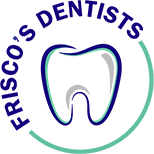Should I Use an Electric Toothbrush?
Electric toothbrushes have come a long way since their original incarnation in 1960, and some dentists are even recommending their patients use an electric toothbrush over regular toothbrushes. Many have found that patients who use them have cleaner teeth, minor plaque build-up (which results in shorter cleanings during check-ups), and healthier gums. But is this the right choice for you?
Electric vs. Sonic Toothbrushes
Choosing an electric toothbrush can be complicated, but here are your two main choices:
Electric Toothbrushes
Electric toothbrushes move 3,000 to 7,500 rotations per minute (RPMs), which mimics the RPMs of the muscles in your arm and hand if they were manually brushing your teeth. In addition, the heads rotate or move back and forth to further cut down the amount of plaque build-up. The extra movement against the gums also massages and strengthens them — both of which will reduce the risk of gingivitis.
Sonic Toothbrushes
Sonic toothbrushes move nearly ten times as much, from 30,000 to 40,000 RPMs. This larger number is really only the difference between the two types of power toothbrushes (aside from price), as they both have the same goal: remove plaque and improve the health of the gums.
What’s the Difference?
So how important are these RPMs? Manual brushing typically averages 300 RPMs, but only if you are brushing properly. If you brush for two minutes – the recommended time – then you’ve brushed your teeth with 600 strokes.
In the same time, an electric toothbrush will yield around 8,000 strokes and the sonic toothbrush will produce 70,000 strokes. Unless you plan to brush your teeth for several minutes to an hour, it’s nearly impossible to achieve the same number of strokes with manual brushing.
The Downside of Powered Brushes
The Food and Drug Administration (FDA) has reported that this is a real concern with the battery-powered Arm & Hammer Spinbrush (formerly known as the Crest Spinbrush). “It’s important that consumers know how to avoid the risks associated with using the Spinbrush,” said Shumaya Ali, M.P.H., a consumer safety officer at the FDA. “We’ve had reports in which parts of the toothbrush broke off during use and were released into the mouth with great speed, causing broken teeth and presenting a choking hazard.”
Since the FDA regulates all toothbrushes as medical devices, they want to push for safety precautions for all electric toothbrushes. They have found that the Spinbrushes have caused the following [reported] injuries:
- chipped or broken teeth;
- cuts to the mouth and gums;
- swallowing and choking on broken pieces; and
- injuries to the face and eyes.
The following Spinbrushes have been identified as culprits:
- Spinbrush ProClean
- Spinbrush ProClean Recharge
- Spinbrush Pro Whitening
- Spinbrush SONIC
- Spinbrush SONIC Recharge
- Spinbrush Swirl
- Spinbrush Classic Clean
- Spinbrush For Kids
- Spinbrush Replacement Heads
Protecting Your Oral Health
No matter what type of toothbrush you choose, remember that the recommendations for maintaining good oral health are the same.
- Brush twice a day, for at least two minutes.
- Do not brush too hard, as it will erode your gums.
- Floss at least once a day.
- Get your teeth cleaned every six months.
Before using any Spinbrush, make sure to do the following:
- Inspect it for any damage or loose bristles. If you find any, do not use it.
- Ensure that the removable head is connected tightly to the handle, and then test it outside of your mouth. If the connection feels loose or the head easily separates from the handle, do not use the brush.
- Do not bite down on the brush while brushing.
- Always supervise children and adults who may need assistance when they use the Spinbrush.
If you have personal questions about if you need an electric toothbrush and which type is best for you, please contact us for toothbrush advice.


